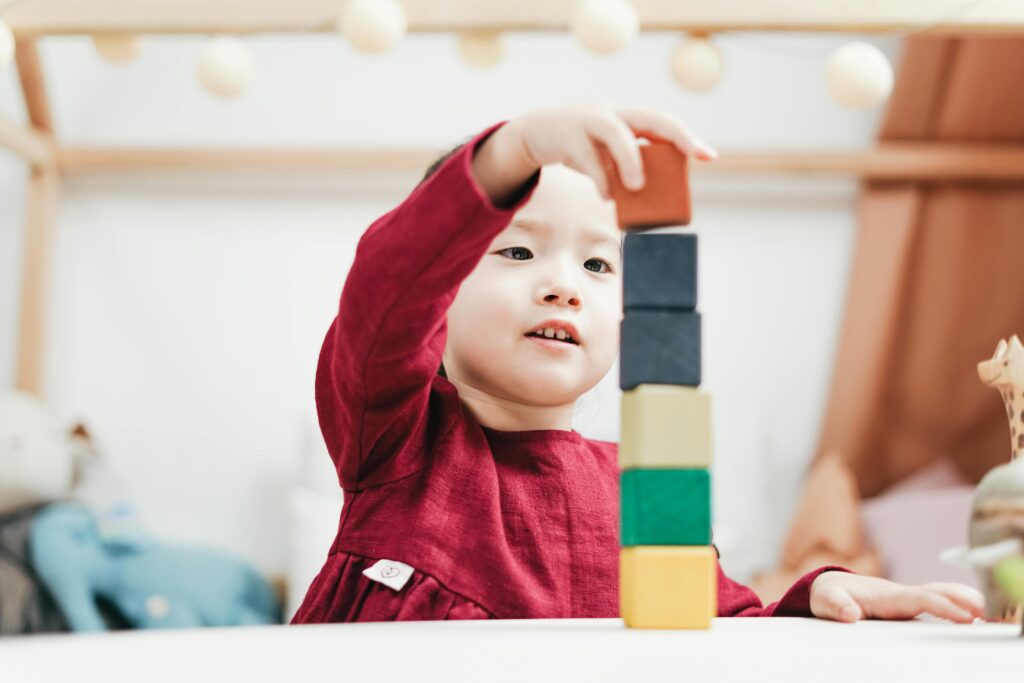
Getting ready for kindergarten is an exciting and significant milestone for both children and parents. It marks the beginning of a child’s formal education journey, filled with opportunities for growth and development. But how can you, as a parent, ensure that this transition is smooth and enjoyable for your little one? Understanding and preparing for what lies ahead can make all the difference.
In this guide, we’ll cover essential tips and strategies to help you and your child feel confident and prepared for kindergarten. From fostering independence to developing social skills, we’ll explore practical steps you can take today. Let’s dive in and discover how to make this new chapter a positive experience for everyone involved.
Creating a Supportive Learning Environment at Home
Your child’s academic success begins with you. By fostering a supportive learning environment at home, your child can take what they learn from school and ask questions and expound upon their interests outside of school.
Providing Opportunities to Learn
Be thoughtful in answering questions and create an environment where your child can explore their interests, whether that be providing your child with related books, creative supplies, educational tools, hands-on experiences, or field trips. This will foster curiosity and get your child excited to learn, both during and after school.
Incorporating Learning into Everyday Activities
To further encourage learning, incorporate learning into everyday activities. Simple tasks like cooking, grocery shopping, or even a walk in the park can become educational opportunities. Discuss measurements while cooking, count items during shopping, and explore nature to teach your child about the world around them.
Promoting a Love for Reading
Encouraging a love for reading is fundamental to a supportive learning environment. Read to your child regularly and make it an interactive experience by asking questions about the story and discussing the characters and plot. This not only improves their listening and comprehension skills but also instills a lifelong love for books.
Encouraging Independence
Encourage independence by allowing your child to make choices and take on small responsibilities. Simple tasks like picking out their clothes, cleaning up toys, or setting the table can boost their confidence and teach them important life skills.
Celebrating Your Child’s Achievements
Provide positive reinforcement and celebrate your child’s achievements, no matter how small. Praise their efforts and progress to build their self-esteem and motivate them to keep learning. Constructive feedback can also help them understand areas where they can improve.
Being a Role Model
Be a role model for a positive attitude towards learning. Show enthusiasm and curiosity in your own activities and share your interests with your child. When children see their parents’ valuing education, they are more likely to adopt a similar mindset.
By fostering a positive learning environment at home, you set the stage for a successful transition to kindergarten. Your child benefits from a sense of security and confidence, knowing you support their learning journey. When children feel encouraged and understand the value of their efforts, they are more likely to embrace new challenges and develop a love for learning. Such an environment not only builds essential skills like independence, responsibility, and self-help but also lays a solid foundation for academic and social success in their upcoming school years.
Nurturing Essential Skills Development
Before your child embarks on their kindergarten journey, it’s crucial to ensure they’re equipped with the foundational skills they’ll need to thrive. These skills aren’t limited to just academics but encompass physical, social, and emotional development as well. By starting early and being consistent, this holistic preparation helps your child feel confident and ready to tackle the exciting challenges of kindergarten. From learning to separate from caregivers to engaging in peer interactions and focusing on tasks, each step counts towards making their transition smoother and more enjoyable.
Academic Skills
Introducing your child to basic academic skills such as recognizing letters, numbers, shapes, and colors provides a strong foundation that can aid them as they attend school. Engaging activities like counting objects, identifying colors in their surroundings, and practicing letter sounds can make learning enjoyable and effective.
Physical Skills
Before starting kindergarten, your child will need to develop a range of physical skills that enhance their fine and gross motor abilities. Mastery of fine motor skills such as holding a pencil correctly, cutting with scissors, and writing their first name are crucial for classroom activities and early literacy. Additionally, gross motor skills like kicking and throwing a ball help build coordination, balance, and muscle strength, supporting their overall physical well-being. Practicing these skills at home can set a solid foundation for their educational journey.
Social Skills
Equally important are the social skills they’ll need in a classroom setting. Encouraging your child to play with peers helps them learn to share, take turns, and resolve conflicts. These interactions are crucial for developing communication skills and understanding social norms, helping them to thrive in social settings like school. You can support this by arranging playdates or enrolling your child in group activities.
Emotional Skills
Fostering emotional skills is key to kindergarten readiness. Teach your child how to express their feelings appropriately and understand others’ emotions. Reading books together that explore various emotions and discussing them can be a great way to build empathy and emotional intelligence. Role-playing different scenarios can also help children practice these skills in a safe and controlled environment.
If you suspect your child will struggle with separation during their first few days of kindergarten, gradually introduce short periods of time apart to help them become comfortable with independence. Establishing a consistent goodbye routine can also provide reassurance; for example, create a fun and loving ritual such as a special hug or a secret handshake. Reassure them that you’ll come back and be honest about when they can expect to see you again, emphasizing the positive aspects of their time away to foster a sense of security and trust.
Comprehension Skills
To enhance both comprehension and fine motor skills, encourage your child to follow multi-step directions during everyday activities. For example, ask them to pick up their toys, put them in the bin, and then wash their hands. This reinforces their ability to listen and execute tasks in sequence, which is vital for classroom activities.
Independence Skills
Nurturing independence in daily routines builds confidence. Teach your child to dress themselves, manage their belongings, and take care of their personal hygiene. These self-help skills are essential as they learn to take responsibility for their actions, preparing them for the structured environment of kindergarten.
The journey to kindergarten is not just about academic milestones, but also about nurturing a well-rounded individual. Celebrate each small achievement, and encourage your child to explore, ask questions, and engage with the world around them. By fostering a balanced development of academic, social, and emotional skills, you are laying a solid foundation for your child’s future learning and success. Your support and encouragement are the keys to their growth, helping them navigate the exciting transition to kindergarten with confidence and enthusiasm.
Engaging in Practical Preparations for Kindergarten Readiness
While nurturing academic, social, and emotional skills is foundational, there are practical steps you can take to ensure a smooth transition to kindergarten for your child. Here’s a checklist to guide you through the essential tasks:
Researching and Touring Schools
Begin by researching potential schools in your area. Look into their curricula, teaching philosophy, and extracurricular activities. Touring schools can offer valuable insights into their learning environments and help you find the best fit for your child. During these tours, ask about class sizes, teacher qualifications, and how the school supports individual learning styles.
Enrolling Early
Once you’ve chosen a school, it’s crucial to enroll your child early. This not only secures their spot but also gives you access to important orientation sessions and resources. Early enrollment also allows your child to meet their future teachers and classmates, helping to ease any first-day jitters.
Gathering Documents
Ensure all necessary documents are in order well before the school’s deadline. This typically includes birth certificates, proof of residence, and immunization records. Check the school’s specific requirements to avoid any last-minute hassles.
School Shopping and Supplies
Shopping for school supplies can be a fun and exciting part of the preparation process. Involve your child in picking out their backpack, lunchbox, and other essentials. This not only helps them feel more enthusiastic about starting school but also gives them a sense of ownership and responsibility.
Health and Safety Preparations
Schedule a wellness check with your child’s pediatrician to ensure they are up to date on vaccinations and in good health. Additionally, discuss any potential allergies or health concerns with the school staff to ensure your child’s safety and well-being.
By focusing on these practical preparations, you’ll be helping to make your child’s transition to kindergarten as smooth and enjoyable as possible. Each step brings you closer to that milestone day when your little one takes their first steps into a world of new learning and possibilities.
Kindergarten is a significant milestone that marks the beginning of your child’s formal education journey. By nurturing essential skills, fostering a supportive home environment, and preparing practically for school, you’re setting your child up for success. Celebrate their progress, be patient, and maintain a positive outlook. Together, you and your child will navigate this new chapter with confidence and excitement.


